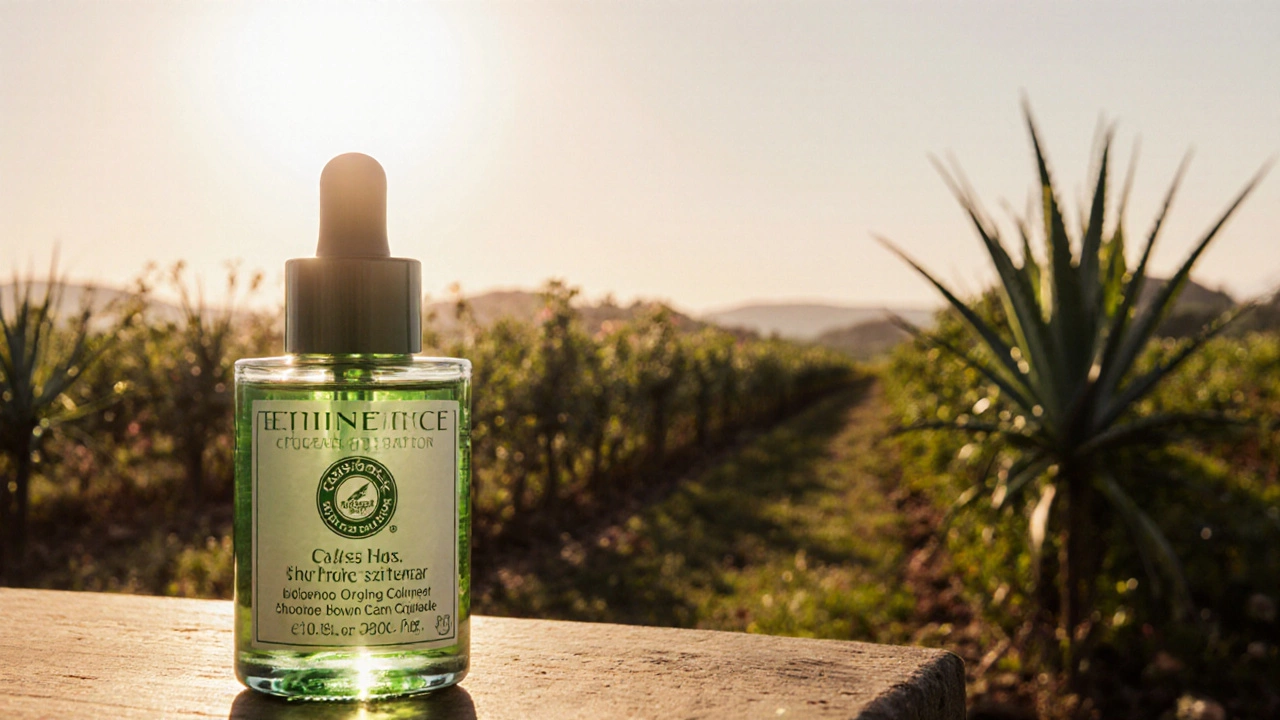Cosmos Certification Explained – Your Guide to Clean Beauty Standards
When talking about Cosmos certification, a pan‑European label that guarantees products meet strict organic, natural, and cruelty‑free criteria. Also known as Cosmeceutical Organic Standard, it helps shoppers identify truly clean cosmetics amid a sea of marketing claims. Organic cosmetics, products that contain a high percentage of plant‑based, sustainably sourced ingredients and cruelty‑free, formulations that are never tested on animals are core components of the Cosmos label. The standard also aligns with EU cosmetic regulation, the legal framework that sets safety and labeling rules for all cosmetics sold in the European market. In short, Cosmos certification connects organic ingredients, animal‑friendly testing, and European law into one trustworthy badge.
Why Cosmos certification matters for everyday beauty lovers
First, the badge cuts through buzzwords. When you see the Cosmos logo, you know the product contains at least 20% organic content for leave‑on items and 50% for rinse‑off items. That directly influences the natural ingredients you apply to your skin, which many of our readers care about because it reduces exposure to synthetic chemicals. Second, the certification forces brands to be transparent about sourcing. Ingredients must be traceable, meaning no hidden petrochemical fillers. Third, because Cosmos adheres to EU regulation, brands must provide safety data, so you avoid hidden irritants that could trigger breakouts or allergic reactions.
Our post collection below reflects how these standards play out in real life. We’ve covered beginner‑friendly skincare routines that prioritize SPF and clean actives, deep dives into cruelty‑free policies from big names like Clinique and Fenty, and guides on spotting genuine organic claims versus green‑washing. All of these topics intersect with Cosmos certification, whether you’re picking a daily moisturizer or a bold lipstick.
From a practical standpoint, Cosmos certification also influences packaging. The label encourages recyclable or biodegradable containers, which ties into the growing demand for sustainable packaging. If you’re looking for products that not only feel good on your skin but also on the planet, the Cosmos badge is a reliable shortcut. Many of the articles in our lineup, such as “Best Skincare Brands in 2025” and “Is Expensive Skincare Worth It?”, discuss how brands balance luxury feel with eco‑friendly practices—a balance that Cosmos explicitly demands.
Another benefit is that Cosmos helps you navigate ingredient safety. For example, our guide on “What Does Toner Do?” explains why certain alcohol‑based toners can be harsh, while Cosmos‑approved toners rely on soothing botanical extracts. Likewise, the piece on “Anti‑Aging Products” highlights how the certification limits the use of controversial preservatives, ensuring the anti‑wrinkle actives you trust are backed by science and regulation.
When you consider the broader beauty landscape, the Cosmos label serves as a bridge between consumer expectations and industry accountability. It pushes brands to adopt cruelty‑free testing, organic sourcing, and compliance with EU regulations—all of which appear repeatedly in our articles about ethical beauty, ingredient transparency, and product efficacy. This synergy makes the tag a valuable hub for anyone wanting to understand how clean standards are enforced across categories.
For those new to the world of certifications, think of Cosmos as a multi‑layered checklist: organic content ≥ 20‑50% depending on product type, no animal testing, compliance with EU safety laws, and environmentally responsible packaging. When a product checks all these boxes, you can feel confident it lives up to its promises. Our posts on beginner skincare routines, cruelty‑free makeup, and ingredient safety all reference these very checkpoints.
In practice, using Cosmos‑certified products can simplify your buying decisions. Instead of juggling dozens of ingredient lists, you can rely on the badge as a shortcut to clean, safe, and ethically made beauty. This aligns with the advice we give in “Essential Makeup Products Every Beginner Needs” – start with a solid base of trustworthy products before layering trends.
Finally, the Cosmos ecosystem is evolving. New updates to the EU regulation may raise the organic percentage requirements or tighten the definitions of “natural”. Brands that already carry the Cosmos label are typically ahead of these changes, meaning they’ll continue to meet higher standards without you having to chase after the latest news. Our article on “Is Clinique Finally Going Cruelty‑Free?” explores how legacy brands adapt to such shifts, often using Cosmos as a roadmap.
Ready to explore the world of clean beauty through the lens of Cosmos certification? Below you’ll find a curated set of articles that break down everything from daily skin‑care steps to the latest cruelty‑free trends, all tied together by the standards that Cosmos represents. Dive in and see how the badge can guide you toward safer, greener, and more effective beauty choices.
Is Eminence 100% Natural? A Deep Dive into the Brand’s Ingredients and Claims
Discover if Eminence skincare truly lives up to its 100% natural claim. Learn about ingredients, certifications, and how to verify product purity.

 Hair Care
Hair Care